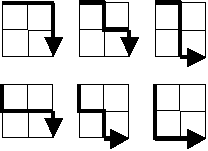import java.math.*;
public class Problem013
{
public static void main(String[] args)
{
long begin = System.currentTimeMillis();
String data[] = { "37107287533902102798797998220837590246510135740250",
"46376937677490009712648124896970078050417018260538",
"74324986199524741059474233309513058123726617309629",
"91942213363574161572522430563301811072406154908250",
"23067588207539346171171980310421047513778063246676",
"89261670696623633820136378418383684178734361726757",
"28112879812849979408065481931592621691275889832738",
"44274228917432520321923589422876796487670272189318",
"47451445736001306439091167216856844588711603153276",
"70386486105843025439939619828917593665686757934951",
"62176457141856560629502157223196586755079324193331",
"64906352462741904929101432445813822663347944758178",
"92575867718337217661963751590579239728245598838407",
"58203565325359399008402633568948830189458628227828",
"80181199384826282014278194139940567587151170094390",
"35398664372827112653829987240784473053190104293586",
"86515506006295864861532075273371959191420517255829",
"71693888707715466499115593487603532921714970056938",
"54370070576826684624621495650076471787294438377604",
"53282654108756828443191190634694037855217779295145",
"36123272525000296071075082563815656710885258350721",
"45876576172410976447339110607218265236877223636045",
"17423706905851860660448207621209813287860733969412",
"81142660418086830619328460811191061556940512689692",
"51934325451728388641918047049293215058642563049483",
"62467221648435076201727918039944693004732956340691",
"15732444386908125794514089057706229429197107928209",
"55037687525678773091862540744969844508330393682126",
"18336384825330154686196124348767681297534375946515",
"80386287592878490201521685554828717201219257766954",
"78182833757993103614740356856449095527097864797581",
"16726320100436897842553539920931837441497806860984",
"48403098129077791799088218795327364475675590848030",
"87086987551392711854517078544161852424320693150332",
"59959406895756536782107074926966537676326235447210",
"69793950679652694742597709739166693763042633987085",
"41052684708299085211399427365734116182760315001271",
"65378607361501080857009149939512557028198746004375",
"35829035317434717326932123578154982629742552737307",
"94953759765105305946966067683156574377167401875275",
"88902802571733229619176668713819931811048770190271",
"25267680276078003013678680992525463401061632866526",
"36270218540497705585629946580636237993140746255962",
"24074486908231174977792365466257246923322810917141",
"91430288197103288597806669760892938638285025333403",
"34413065578016127815921815005561868836468420090470",
"23053081172816430487623791969842487255036638784583",
"11487696932154902810424020138335124462181441773470",
"63783299490636259666498587618221225225512486764533",
"67720186971698544312419572409913959008952310058822",
"95548255300263520781532296796249481641953868218774",
"76085327132285723110424803456124867697064507995236",
"37774242535411291684276865538926205024910326572967",
"23701913275725675285653248258265463092207058596522",
"29798860272258331913126375147341994889534765745501",
"18495701454879288984856827726077713721403798879715",
"38298203783031473527721580348144513491373226651381",
"34829543829199918180278916522431027392251122869539",
"40957953066405232632538044100059654939159879593635",
"29746152185502371307642255121183693803580388584903",
"41698116222072977186158236678424689157993532961922",
"62467957194401269043877107275048102390895523597457",
"23189706772547915061505504953922979530901129967519",
"86188088225875314529584099251203829009407770775672",
"11306739708304724483816533873502340845647058077308",
"82959174767140363198008187129011875491310547126581",
"97623331044818386269515456334926366572897563400500",
"42846280183517070527831839425882145521227251250327",
"55121603546981200581762165212827652751691296897789",
"32238195734329339946437501907836945765883352399886",
"75506164965184775180738168837861091527357929701337",
"62177842752192623401942399639168044983993173312731",
"32924185707147349566916674687634660915035914677504",
"99518671430235219628894890102423325116913619626622",
"73267460800591547471830798392868535206946944540724",
"76841822524674417161514036427982273348055556214818",
"97142617910342598647204516893989422179826088076852",
"87783646182799346313767754307809363333018982642090",
"10848802521674670883215120185883543223812876952786",
"71329612474782464538636993009049310363619763878039",
"62184073572399794223406235393808339651327408011116",
"66627891981488087797941876876144230030984490851411",
"60661826293682836764744779239180335110989069790714",
"85786944089552990653640447425576083659976645795096",
"66024396409905389607120198219976047599490197230297",
"64913982680032973156037120041377903785566085089252",
"16730939319872750275468906903707539413042652315011",
"94809377245048795150954100921645863754710598436791",
"78639167021187492431995700641917969777599028300699",
"15368713711936614952811305876380278410754449733078",
"40789923115535562561142322423255033685442488917353",
"44889911501440648020369068063960672322193204149535",
"41503128880339536053299340368006977710650566631954",
"81234880673210146739058568557934581403627822703280",
"82616570773948327592232845941706525094512325230608",
"22918802058777319719839450180888072429661980811197",
"77158542502016545090413245809786882778948721859617",
"72107838435069186155435662884062257473692284509516",
"20849603980134001723930671666823555245252804609722",
"53503534226472524250874054075591789781264330331690" };
BigInteger sum = BigInteger.ZERO;
for (int i = 0; i < data.length; i++)
{
BigInteger b = new BigInteger(data[i]);
sum = sum.add(b);
}
long end = System.currentTimeMillis();
System.out.println(sum);
System.out.println(end-begin + "ms");
}
}